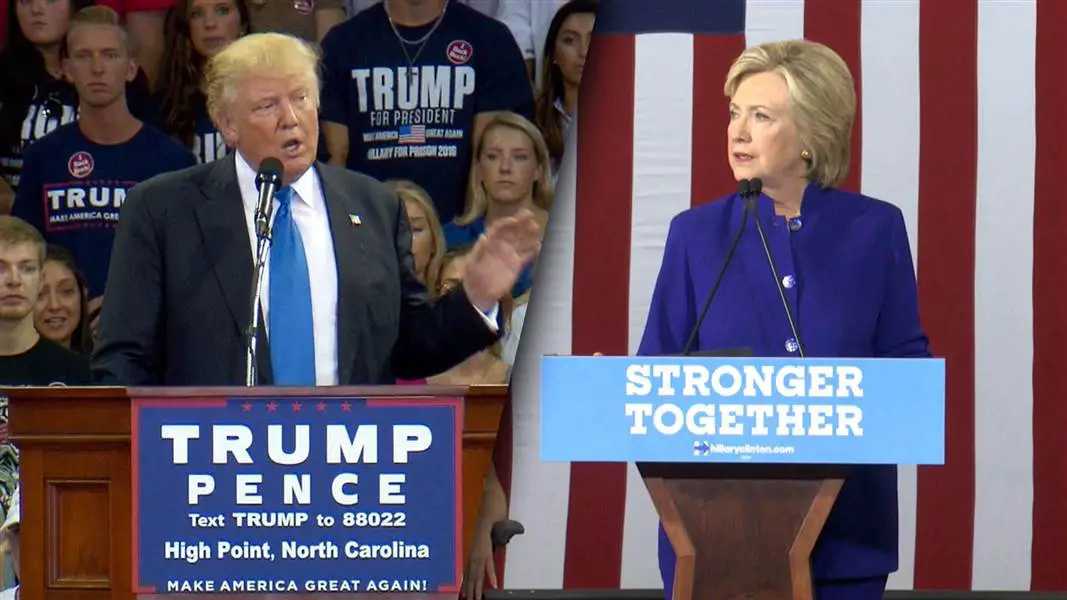Some are saying the first presidential debate will be a real event, possibly drawing more viewers than the record-setting 81 million who tuned in for the Carter-Reagan debate. The Intercept is not so sure it will be much of a show, in an article entitled, “Why the Presidential Debates Will Suck Even Though They Don’t Have To.”
Donald Trump and Hillary Clinton have theoretically agreed to three debates. But the value of those debates will be dramatically limited because the Commission on Presidential Debates, which runs them, is a private organization controlled by elites from the two major parties whose goal is to protect their standard-bearers.
And under the guidance of the commission, presidential debates have become echo chambers for the two major party candidates to repeat familiar talking points and lob rehearsed one-liners, rarely deviating from their scripts. . .
But these debates could be far better. Among the most often-cited possible improvements: They could allow for longer response times; require candidates to ask each other open-ended questions; invite third parties; and be moderated by panelists who are experts in various subject areas and who are free to aggressively follow up on candidate responses, pushing them to dig down into policy questions.
The single easiest change would be to pick knowledgeable, confrontational moderators. . . The campaigns also insist on banning open-ended candidate-to-candidate questioning. This form of cross-examination would make candidates directly confront each others’ political positions and philosophy, potentially departing from talking points and scripts. . .
By aggressively resisting the presence of third-party candidates, CPD debates are limited to the ideologies of the major campaigns. The result is that if neither party wants to address an issue, it doesn’t get addressed.
We’ve already heard the word that only the major parties will be included in the debate. But as the above article says, having multiple viewpoints on the stage would make the debate more informative and interesting. That’s apparently what most people want.
A recent USA Today poll found 76% of voters want debates with four candidates including not just the two most hated candidates in history, the Republican and Democratic nominees and their vice presidential running mates, but Jill Stein and Ajamu Baraka of the Greens, and Gary Johnson and Bill Weld of the Libertarians.
Any candidate on enough ballots to achieve 270 electoral college votes should be in the debates. The people have a right to see all candidates debating the issues who are on their ballots.
The deceptive debate commission, which is called a debate commission just to hide the truth: it is a corporation of the Democrats and Republicans whose purpose is to limit debates to their two parties, has no legitimacy. It has a major conflict of interest – why should the two establishment parties decide their opponents cannot debate? It is an obvious conflict of interest that the media should be calling out. The media should join the demand of the people – open debate are essential for democracy.
Today, half of US voters do not even consider themselves Democrats or Republicans, both parties are widely disliked and debates should not be limited to two minority parties, who present two hated candidates when there are four candidates on enough ballots to win a majority of the electoral college.
If you are interested, the above site offers a Facebook page, if you want to protest that the debates are limited to the major parties.
But, of course, there is one thing that will make these debates different from any previous debate: One major presidential candidate is a woman.
The Sept. 26 presidential debate at Hofstra University marks the first formal faceoff between Donald Trump and Hillary Clinton but also the first time in history that a man will go head-to-head against a woman in the high-stakes format.
Are they forgetting Geraldine Ferarro and Sarah Palin? Well, let’s let ‘em continue. . .
“It’s uncharted territory,” said Democratic strategist Bob Shrum, adding of the November campaign, “We’ve never, ever, ever had a woman in the presidential debates.”
The Republican nominee should be very conscious of how he attacks his Democratic opponent, Shrum said.
“I’m talking about calibrating the language that you use and the way you go after her,” said the politics veteran, who has prepped presidential contenders for debates.
On the other hand, Hillary has found that she can’t debate the same way a man can.
“They’ll be pounding the message, and screaming about how we need to win the election,” she said. “ . . . But I’ve learned that I can’t be quite so passionate in my presentation. I love to wave my arms, but apparently that’s a little bit scary to people. And I can’t yell too much. It comes across as ‘too loud’ or ‘too shrill’ or ‘too this’ or ‘too that.’ ”
And finally, Fox News Analyst Howard Kurtz says, in the Washington Times, that Trump could “pull a Reagan.”
“The first debate represents Donald Trump’s chance to pass the commander in chief test,” says veteran media watcher Howard Kurtz, a Fox News analyst. “Trump has a chance here to pull a Reagan. If he comes in, if he’s reasonably serious, he doesn’t call her ‘crooked Hillary’ and speaks in complete sentences, he could beat the expectations game we all like to play,” predicts Mr. Kurtz.
No matter which candidate you like (or dislike less), it’s likely there will not be a dull moment in this debate, Monday, September 26.
Donate Now to Support Election Central
- Help defend independent journalism
- Directly support this website and our efforts
